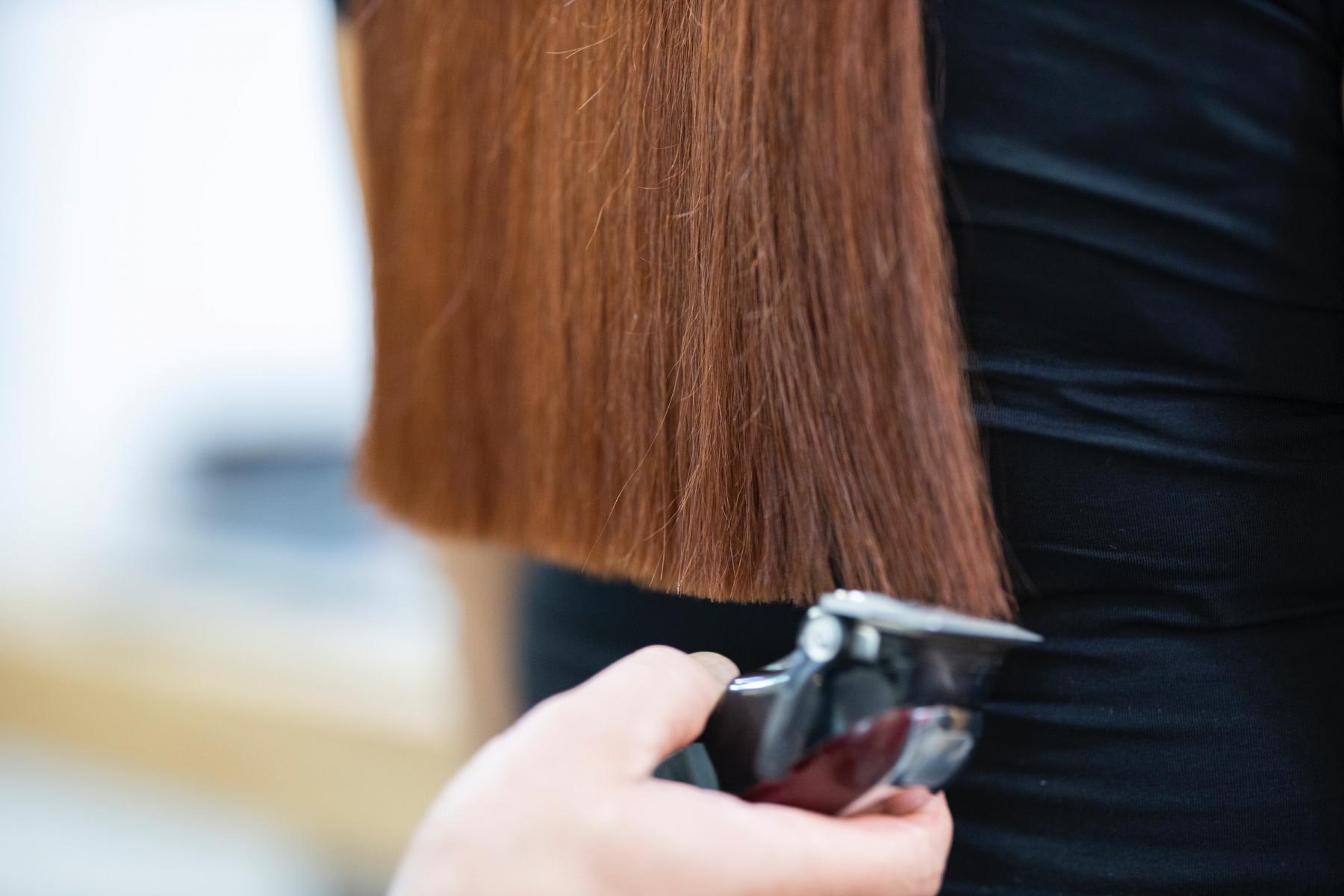
- 1. What Happens to Your Hair in Winter?
- 2. Repairing Your Hair after Winter: Stylists’ Tips and Hair Care Routine
- 3. Salon Hair Repair Treatments
Dull hair that is susceptible to damage is only a fraction of winter-related problems you can have with your hair. How to make your hair healthy and beautiful after the season of hats and constant transitions from cold to hot temperatures? We hit up a few hair stylists for tips on the best ways to repair your locks after winter.
What Happens to Your Hair in Winter?
Winter weather is damaging not only to your face, but also to your hair. It is exposed to several negative factors at once, including:
- fabric damage from wearing hats
- exposure to cold if you don’t wear a hat
- dry air indoors
- frequent transitions from cold air outdoors to hot air indoors
- less vitamins and microelements in a diet
- a worse water consumption schedule
- stress
- wrong hair care products.
The last four factors are present not only in winter, but in any season.

How do these factors affect your hair? They can lead to:
- dull hair
- breakage
- more oily scalp and hair
- split ends
- dry hair
- porous hair
- static
- dandruff
- hair loss.
This is why it’s so important to take care of your health in general and the health of your hair all the time. You should just follow some common recommendations.
Here’s what you should do:
- get enough sleep
- avoid stress
- drink at least 1.5 liters of water a day
- eat products with vitamins A, E, C, and B, zync, and silica.
Repairing Your Hair after Winter: Stylists’ Tips and Hair Care Routine
Hair care is not only in the hands of hair stylists in salons. Those of us who have damaged hair after winter can do a wide range of procedures and treatments to help repair our hair in spring at home.

Hair Restoration: Tips from Stylists
Without knowing certain nuances, you can make the state of your hair that is already weakened after winter even worse. To avoid this, hair stylists recommend following some basic rules:
- Get split ends cut off regularly.
- Wash your hair not with hot, but with warm water. It’s better if you use boiled water. Mineral water is better still.
- Rinsing your hair with herbal decoctions will improve its health. You can use decoctions of horsetail, chamomile, linden, plantain, or nettles.
- Don’t wash your hair every day — do it at least every other day. You can use powder shampoo between washes.
- Brush your hair before washing it, not after.
- Let your hair dry on its own, using the blow dryer less.
- Always use a heat protectant when styling your hair with a curling iron or a curling wand.
- Introduce peels and scrubs to your routine, but first check with your stylist or trichologist if you have scalp problems.
- Use a hair mask at least once a week. Using it twice a week will help your hair restore faster after winter.

Right Care Routine for Weakened Hair
Your hair care routine should include the following:
- Cleaning. In spring, switch to shampoos and other hair products with soft formulas. Opt for products without lauryl sulfates and with proteins, keramids, vitamins B and E, and herbal extracts. Such products will clean your hair without making it too dry. Choose products that suit your hair type.
- Moisturizing. A shortage of water can make your hair dry and dull and lead to split ends. To fix it, use hair care products such as conditioners, balms, and masks that contain lipids and moisturizing components.
- Repairing. Finish your hair care routine with leave-in products. They come in the form of oils, sprays, creams, and milks. Their task is to seal hair scales, making hair shafts smooth and strong. As a result, your hair becomes more bouncy, elastic, and shiny.
Salon Hair Repair Treatments
A professional hair stylist is the first person who can make your hair healthy and beautiful again. They can assess the state of your scalp and hair, help you pick the right products, get rid of split ends, and give you the necessary treatments, for example:
- hair botox
- hair lamination
- keratin straightening.

All these procedures improve the look of your hair without affecting your health overall. If the state of your hair deteriorates due to other health issues, seek help not from a hair stylist but from a trichologist who will prescribe you a course of treatment, including mesotherapy and other treatments.
The health of your hair depends on a set of measures that does not end with external care and regular visits to your hair stylist. Keep in mind that you should also take care of your health in general: avoid stress, eat a healthy diet, and drink more water. If you do this, you can avoid such hair problems after winter.


















to leave a comment
Log in